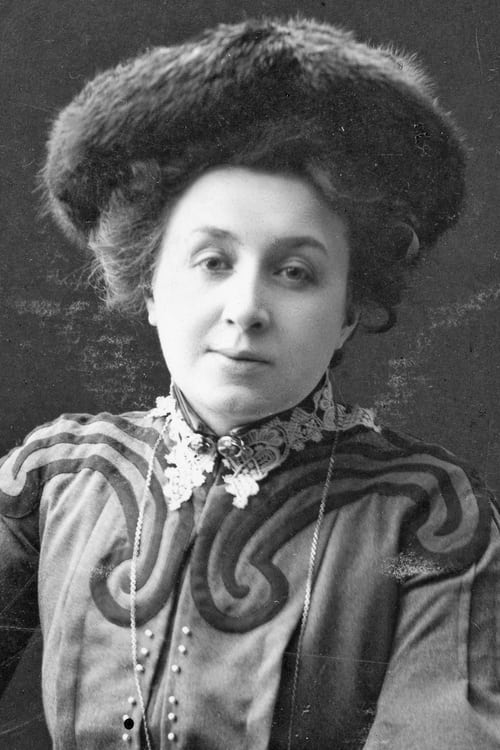|
|
|
|

|
Tösen från Stormyrtorpet (1917)
Character: Wedding guest
A 1917 Swedish drama film directed by Victor Sjöström, based on a 1913 novel by Selma Lagerlöf. It was the first in a series of successful Lagerlöf adaptions by Sjöström, made possible by a deal between Lagerlöf and A-B Svenska Biografteatern (later AB Svensk Filmindustri) to adapt at least one Lagerlöf novel each year. Lagerlöf had for many years denied any proposal to let her novels be adapted for film, but after seeing Sjöström's Terje Vigen she finally decided to give her allowance.
|
|

|
Familjens traditioner (1920)
Character: Aunt Frederique
"Family Traditions" - The young Baron Robert falls in love with his distant relative Helga.
|
|

|
Bodakungen (1920)
Character: Sätermoran
It's the beginning of the 1800s. A feud between the people of Ödemo and Rävgården has been going on since the dawn of time and now it's worse than ever.
|
|

|
Polis Paulus' påskasmäll (1925)
Character: N/A
Anne Marie (Lili Lani) gets invited by her aunt to a hotel to to meet her admirers. Not to fulfill her aunt's wishes, but to verify who works at the hotel.
|
|

|
Bomben (1920)
Character: N/A
Ture believes he has killed an elderly man after his birthday party.
|
|

|
Thomas Graals myndling (1922)
Character: N/A
Paul is a student does not devote to much time for studies. He enjoys the pleasures of life. Babette is a girl who dreams about a life in luxury. Paul falls in love with Babette.
|
|

|
Carl XII:s kurir (1924)
Character: Aurora Sobieska
Adjutant general Axel Roos is selected by King Charles XII to deliver a message to the court from the army in Bender, current day Moldova. His ride will take him straight through hostile Europe, where both Russians and Poles have interests in capturing him.
|
|

|
Ett farligt frieri (1919)
Character: Tore's Mother
The farmer Knut Husaby has a daughter, Aslaug, who is the most beautiful girl in the village. Many boys are after her, but Knut and his two sons drive them away, if they come too close to the farm. Aslaug is secretly in love with Tore Naesset. But he is only a smallholder's son, and when he asks for Aslaug's hand, her father just laughs at him. Instead her father wants Aslaug to marry Ola Thormundson, a gawky boy, who is the son of the wealthiest farmer in the village. Aslaug brings her family's cattle to the Husaby summer farm up in the mountain. Only one road leads to the summer farm, and it passes right by the main farm. When Tore returns from a visit to Aslaug in the mountains, Knut and his sons beat him black and blue. As it's impossible for him to use the road anymore, Tore has to figure out another way to go to Aslaug. Next Saturday he crosses the fiord in a rowing-boat. He stops at a fifty meter high wall of rock, and starts climbing it, hoping to reach Aslaug at the top.
|
|

|
Rågens Rike (1929)
Character: Old Countrywoman
Based on a Finnish poem, The Kingdom of Rye is a gorgeous romantic drama set in rural northern Sweden during the harvest. It features a young couple whose love affair is fraught with Hardy-esque complications and an unhappily married wife of the landowner.
|
|

|
Ordet (1943)
Character: N/A
Swedish film of the Kaj Munk play that was made into a far more famous film by Carl Dreyer in Denmark twelve years later.
|
|

|
Hälsingar (1933)
Character: Mother Övergård
Jonas goes with a tremendous speed with his horse over a country road in Hälsingland. Because of this speed Birgit Ljusnar, who is along the road picking blueberries, falls. Jonas stops and helps her up. He gives Birgit two Swedish crowns for the pain and the suffering. Furthermore, he promises her a job on the farm.
|
|

|
Pettersson & Bendel (1933)
Character: Fru Johansson
The two conmen Bendel and Pettersson starts doing business together. Bendel got the brains and Pettersson the charm.
|
|

|
Gösta Berlings saga (1924)
Character: Woman at Ekeby party
Gösta Berling is a young and attractive minister. Because of his alcoholism and his daring sermons, he is finally defrocked. He becomes a tutor of countess Marta's stepdaughter and they fall in love. But the countess has a plan of her own.
|
|














